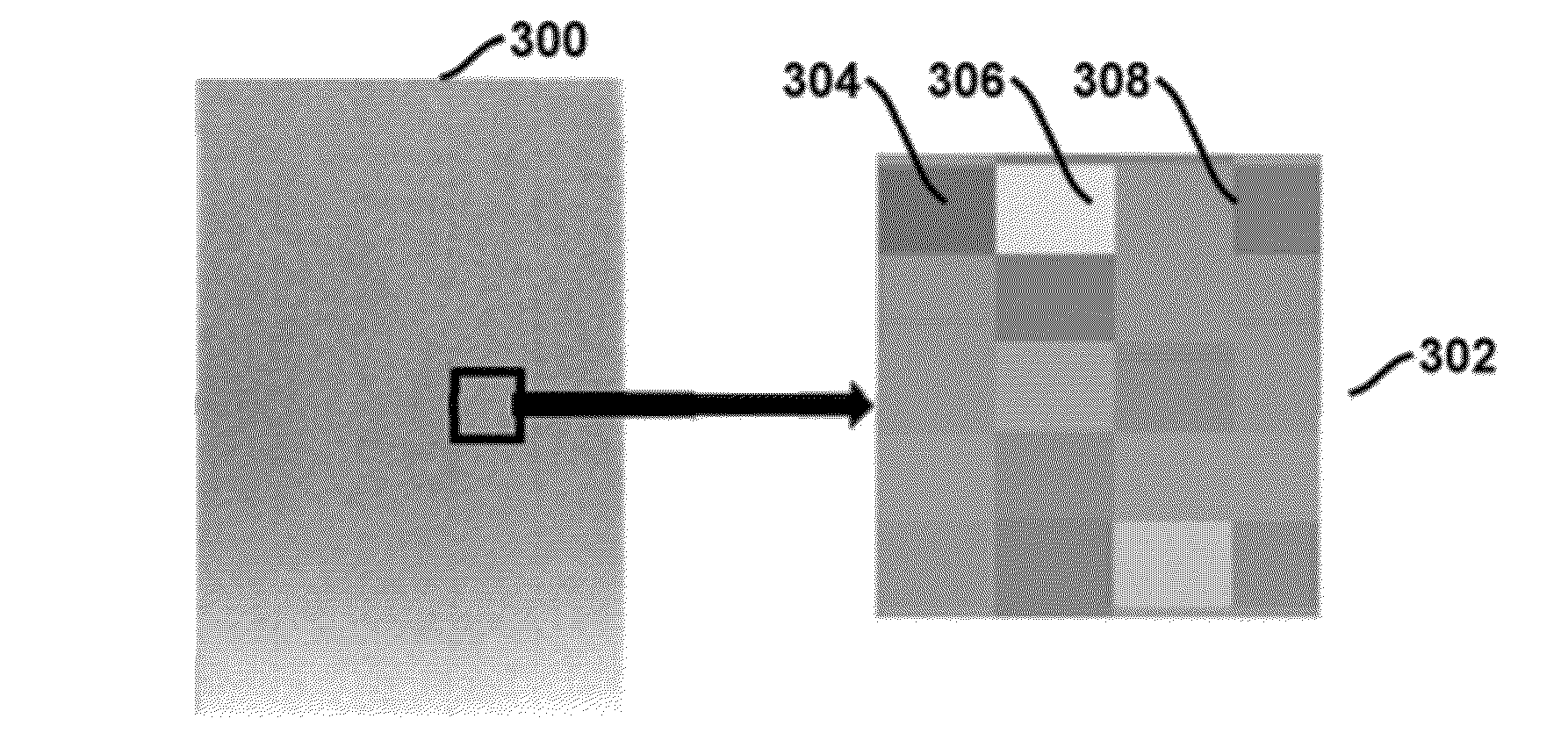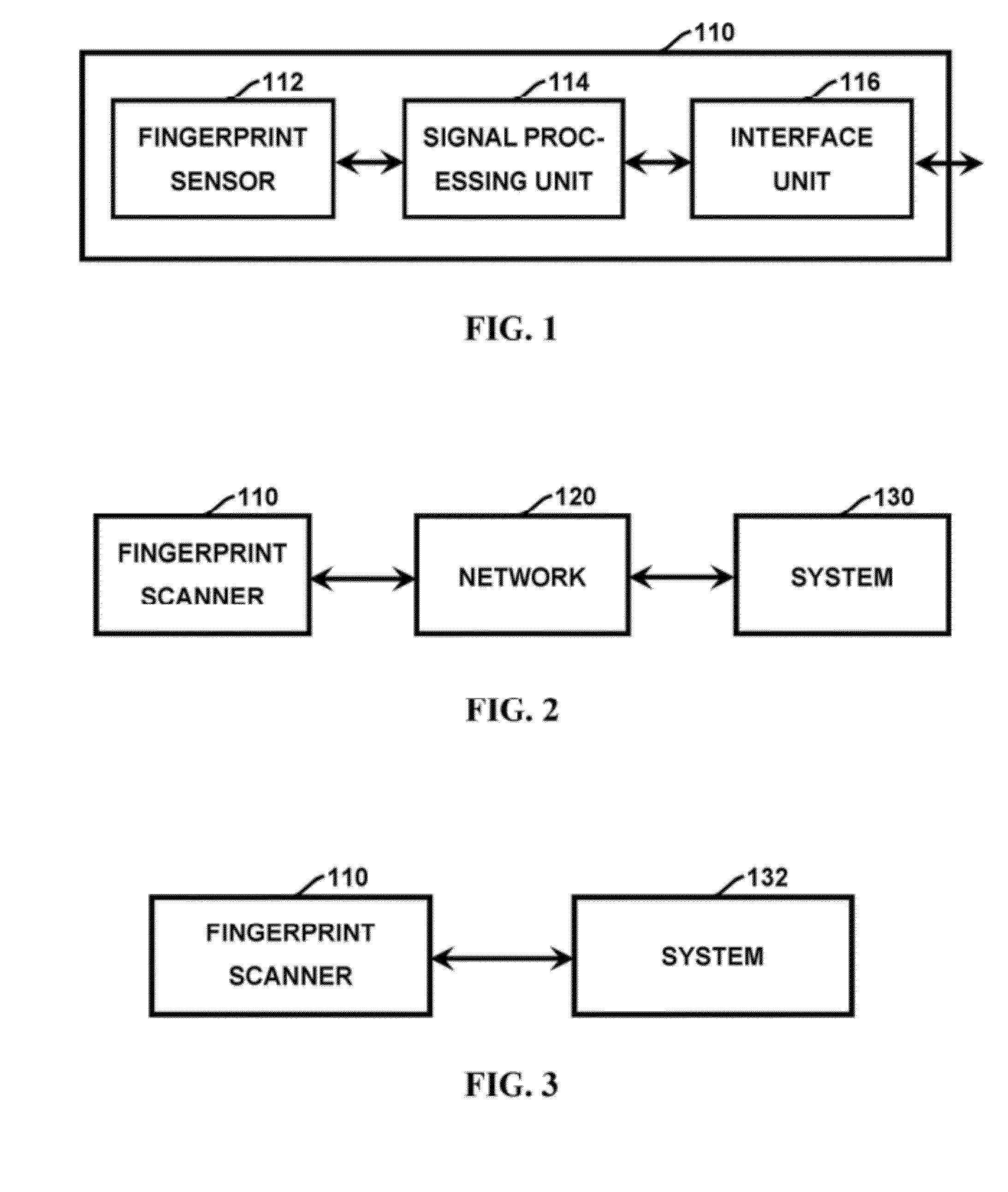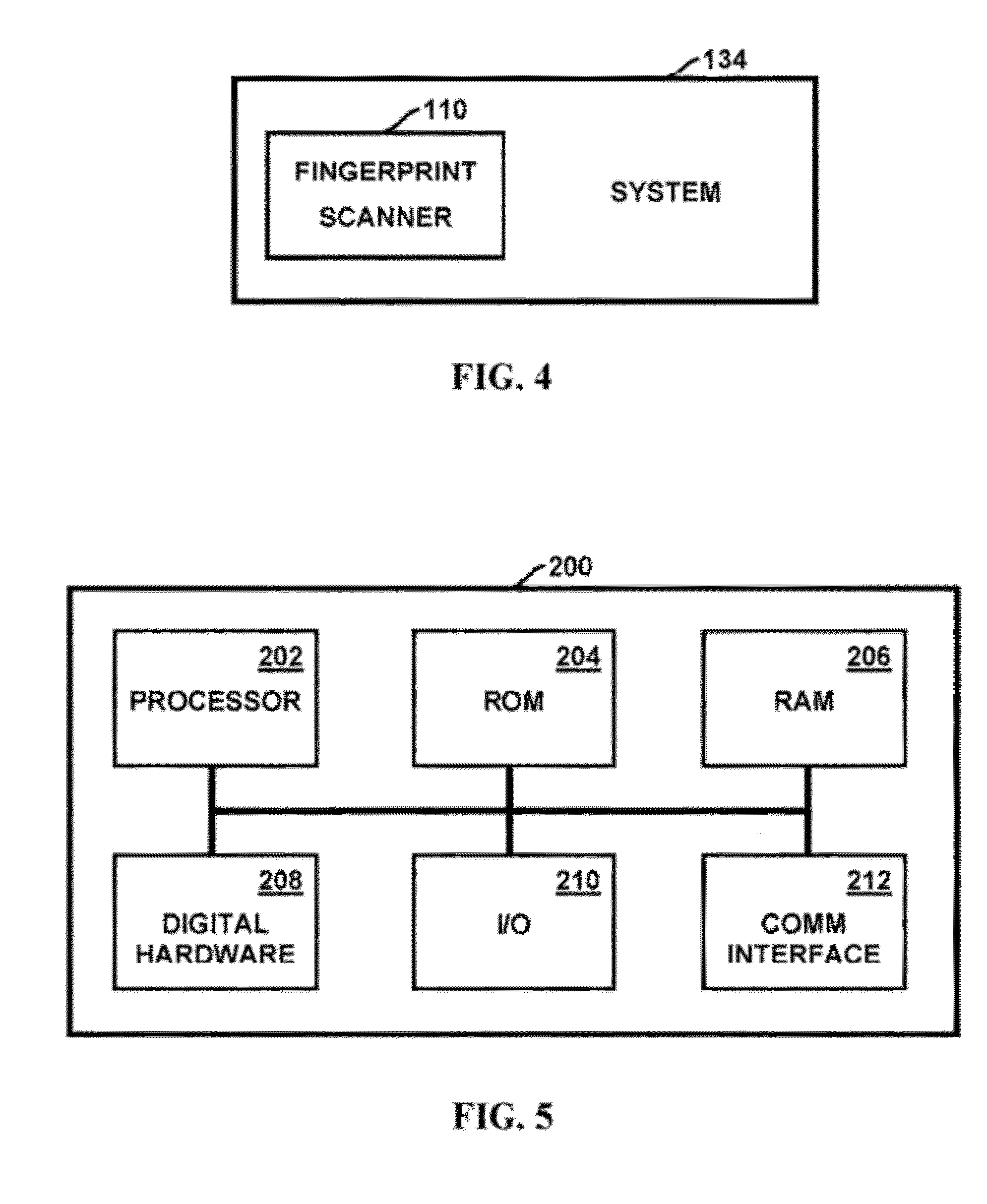Method and apparatus for authenticating swipe biometric scanners
- Summary
- Abstract
- Description
- Claims
- Application Information
AI Technical Summary
Benefits of technology
Problems solved by technology
Method used
Image
Examples
Embodiment Construction
[0042]A typical fingerprint scanner, shown as block 110 in FIG. 1 generally comprises a fingerprint sensor 112, which reads the fingerprint pattern, a signal processing unit 114, which processes the reading of the sensor and converts it into an image, and an interface unit 116, which transfers the image to system (not shown in the figure) that uses it. The system that uses the image includes, but is not limited to, a desktop or server computer, a door lock for access control, a portable or mobile device such as a laptop, PDA or cellular telephone, hardware token, or any other access control device.
[0043]As shown in FIG. 2, the fingerprint scanner 110 can be connected to the system 130 that uses the image via wireless or wired links and a network 120. The network 120 can be, for example, the Internet, a wireless “Wi-Fi” network, a cellular telephone network, a local area network, a wide area network, or any other network capable of communicating information between devices. As shown ...
PUM
 Login to View More
Login to View More Abstract
Description
Claims
Application Information
 Login to View More
Login to View More - R&D
- Intellectual Property
- Life Sciences
- Materials
- Tech Scout
- Unparalleled Data Quality
- Higher Quality Content
- 60% Fewer Hallucinations
Browse by: Latest US Patents, China's latest patents, Technical Efficacy Thesaurus, Application Domain, Technology Topic, Popular Technical Reports.
© 2025 PatSnap. All rights reserved.Legal|Privacy policy|Modern Slavery Act Transparency Statement|Sitemap|About US| Contact US: help@patsnap.com



